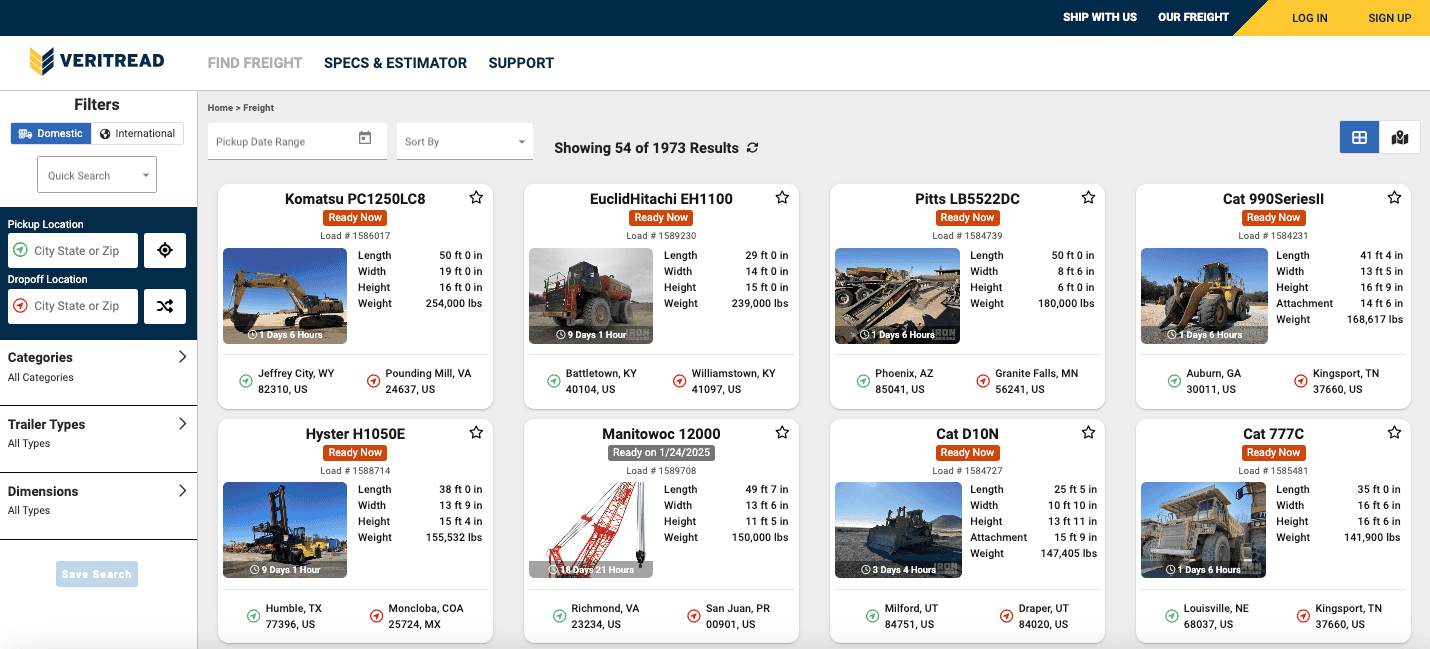Buying an Excavator – 4 Tips & Things to Know
Buying an Excavator – 4 Tips & Things to Know

Buying an Excavator is an important task that takes much consideration before committing to a large purchase. With so many factors to think of, we have compiled a list of Things to Consider Before Buying Your Next Excavator. An excavator is often the most useful piece on the lot when your construction job requires large-scale digging. Most construction projects involve a lot of digging and earth moving whether starting from a rocky lot, hillside, or wooded area. Besides making the work much easier, buying an excavator will help you save a lot of time and money.
1. How Do I Choose an Excavator?
When determining what excavator to buy you must first ask yourself what will you need the machine for? Knowing the requirements of the job you will be performing is essential before you buy an excavator. Additional features like selectable power modes and auto-idle can have a real impact on fuel savings and overall operating costs. Telematics, rear and side view cameras and added LED light kits can also make your operations safer and more efficient.
Consider the size you need
There are 3 main segments of excavator sizes – Compact/Mini, Standard, and Large.
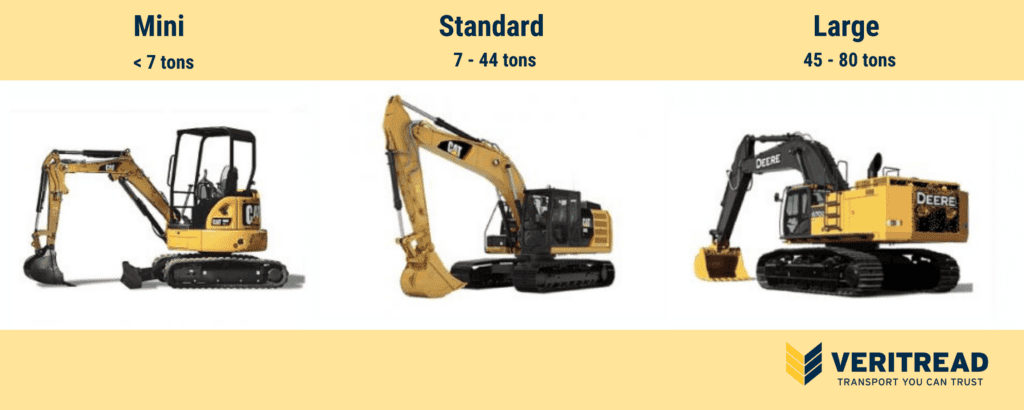
Compact/Mini Excavators are usually the most mobile. They are classified as any excavator under 7 tons. They are the best choice for small jobs as well as those with tight spaces to work in. These mini excavators are most common at rental facilities for the average user. They require the least amount of power and will also do the least amount of damage to the road, sidewalk or any areas you are working around.
Standard Excavators are larger than 7 ton and less than 45 tons. This versatile piece of equipment work well for most any type of job and space. They have lots of power so get ready to repair the yard if you have to drive through it. A standard excavator is the most common excavator on the construction job site.
Large Excavators are larger than 45 tons and can reach up to 80 tons. These monster machines are industrial workhorses. You will need to be prepared to make a significant investment to purchase this machine. You won’t see them at your everyday job site as they don’t maneuver as well in cities with sloped and tighter spaces. When you think of size and power, a large excavator will be your best bet.
Hydraulics & Attachments
The hydraulic system drives the machine’s lifting strength and responsiveness, enabling the machine to work faster throughout the work cycle. Consider the attachments you plan on working with, and understand the hydraulic flows required for each. Equipping your excavator with the right attachments will give you versatility to get the most out of your investment. Also, be sure to ask about the machine’s coupler options. This will often help determine the scope and variety of attachments you can use with the machine.
Transportation & Access
When purchasing a new machine, transportation is always an important consideration. Depending on your current fleet, a larger trailer may be needed to haul your new excavator. You may also need to consider traveling on weight-limited roads bridges, as well as the necessary certification for your drivers.
You also need to consider what trailer size is needed for transport and if you will need any attachments to complete the job. If you do not plan to purchase your own trailer, VeriTread can connect you with the best carrier with the right equipment to transport your new excavator to the job site.
Controls
Many excavators offer an easy pattern control selector that allows the operator to adjust the machine to their preference. Using ISO (International Standards Organization) the right hand controls the stick and bucket motion, while the left hand controls the swing and the boom. SAE (Society of Automotive Engineering) are the opposite. Most operators have a strong preference between ISO or SAE control patterns. Some excavators even have the possibility to change the operating mode between the two.
Tracks & Undercarriage
It’s important to understand the many track options available and the impact that they have on the productivity of the machine. Most compact excavators will come standard with rubber tracks, which are designed to minimize surface damage during travel and operation in the residential, street, and in-building applications they are used in. Rubber tracks wear out more quickly than steel, so there are a large variety of aftermarket track types available with varying widths and tread depth.
Mid, standard, and full-sized excavators are typically equipped with steel tracks, and also come in varying sizes, widths and depths. When evaluating track options you should consider the ground conditions and applications in which you intend to utilize the excavator. Deep grousers and wider tracks offer better traction in softer conditions.
2. What Is The Average Price of an Excavator?
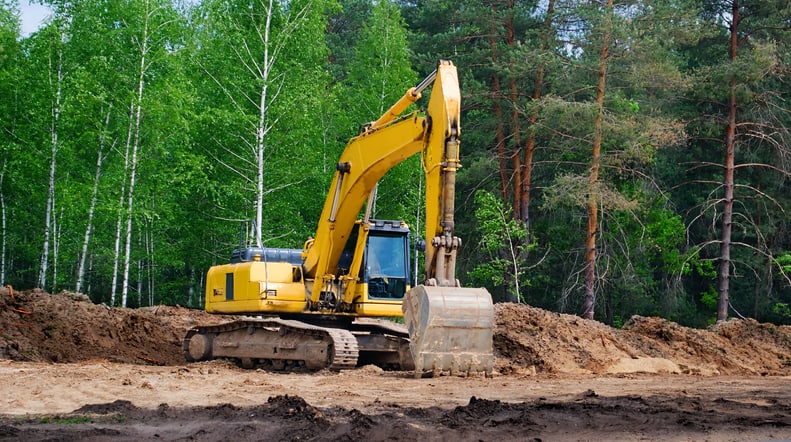
Excavator prices vary based on several factors including size, brand, and performance. A full-size excavator can range between $100,000 to $500,000 and even higher. Whether the excavator comes equipped with attachments also influences the cost. You will need to determine what you will be using the excavator for and what your budget will be before looking to buy an excavator.
3. Should I Buy a New or Used Excavator?
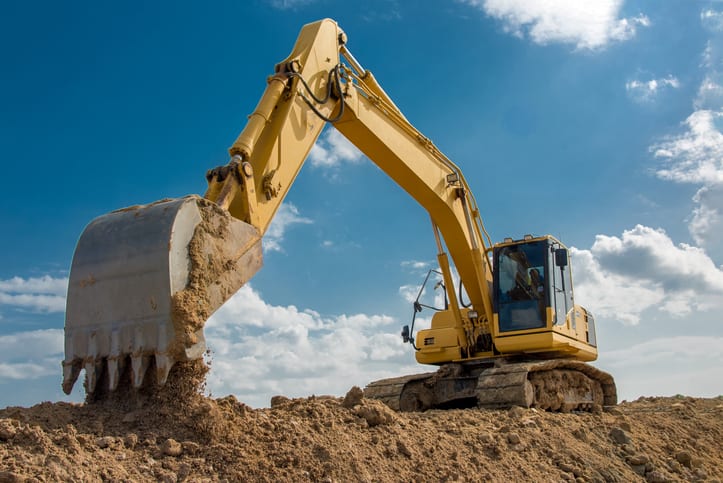
While most brand new full-size excavators can range from $100,000 to $500,000+, many look to buy a used excavator. Used excavators can be discounted from 25 – 50% making them an attractive solution to your budget needs. Many factors determine the cost of used excavators like the current hours on the odometer. You will want to have a full inspection completed before considering the purchase. This will be performed by a licensed mechanic who will look over the entire machine as well as any attachments to give you a guide of the current wear and tear. You can use this inspection to estimate the life span left on the used machine. You’ll also want to consider the maintenance of a used excavator as those tend to increase as the machine ages.
Renting an excavator is another great option to complete your project, especially if it is only needed for one time. Rental costs will fluctuate and can be based on things like location, how many days you are renting it, etc.
4. What to Look for When Buying a Used Excavator.
These 5 tips can help determine the value of a used excavator.
- Play or Movement
- Cracks, Bends, or Dents
- Leaks
- Inaccurate or Broken Hours Meter
- Scalloping
When looking to buy used equipment you should always check the Undercarriage, Engine, Final Drives, Swing Motor and Swivel Motor where applicable. The cosmetics of the machine can give you insight of how well the machine has been maintained as well as how rough the previous user was on the machine.
Why Choose VeriTread?
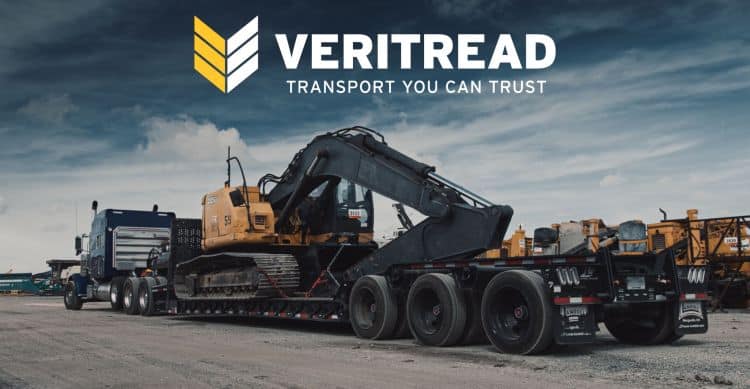
Once you’ve purchased your excavator look to us for all of your transportation needs. VeriTread is your go-to solution for hauling an excavator. We can have your excavator delivered to any destination in North America in a safe and timely manner. We are experts with connecting you with a transport provider that can handle all the paperwork, select the right trailer and driver, and chart the most efficient route.
VeriTread moves thousands of machines every year and can quickly generate a reliable estimate on the go. Our extensive specs and dimensions database of 60,000+ items, ensures you spend less time researching and more time putting your equipment to work. The VeriTread Shipper quote process is the simplest way to receive competitive quotes from vetted transport providers. Follow these easy steps and you will receive a quote in under one minute:
- Select Ready To Ship from the Freight Options Page
- Enter a Manufacturer & Model
- Verify or Edit Your Machine Dimensions
- Enter Pickup & Drop Off Locations
- Your Quote is Ready!
We believe our suite of innovative decision tools empower our customer to make smarter and more informed transportation decisions, reducing overall uncertainty, and saving you time and money. If you have questions contact us at (800) 880-0468 or (863) 226-0903 and let our team of experts help you with your transport needs.
veritread products
Top Articles
Freight Types
recent posts
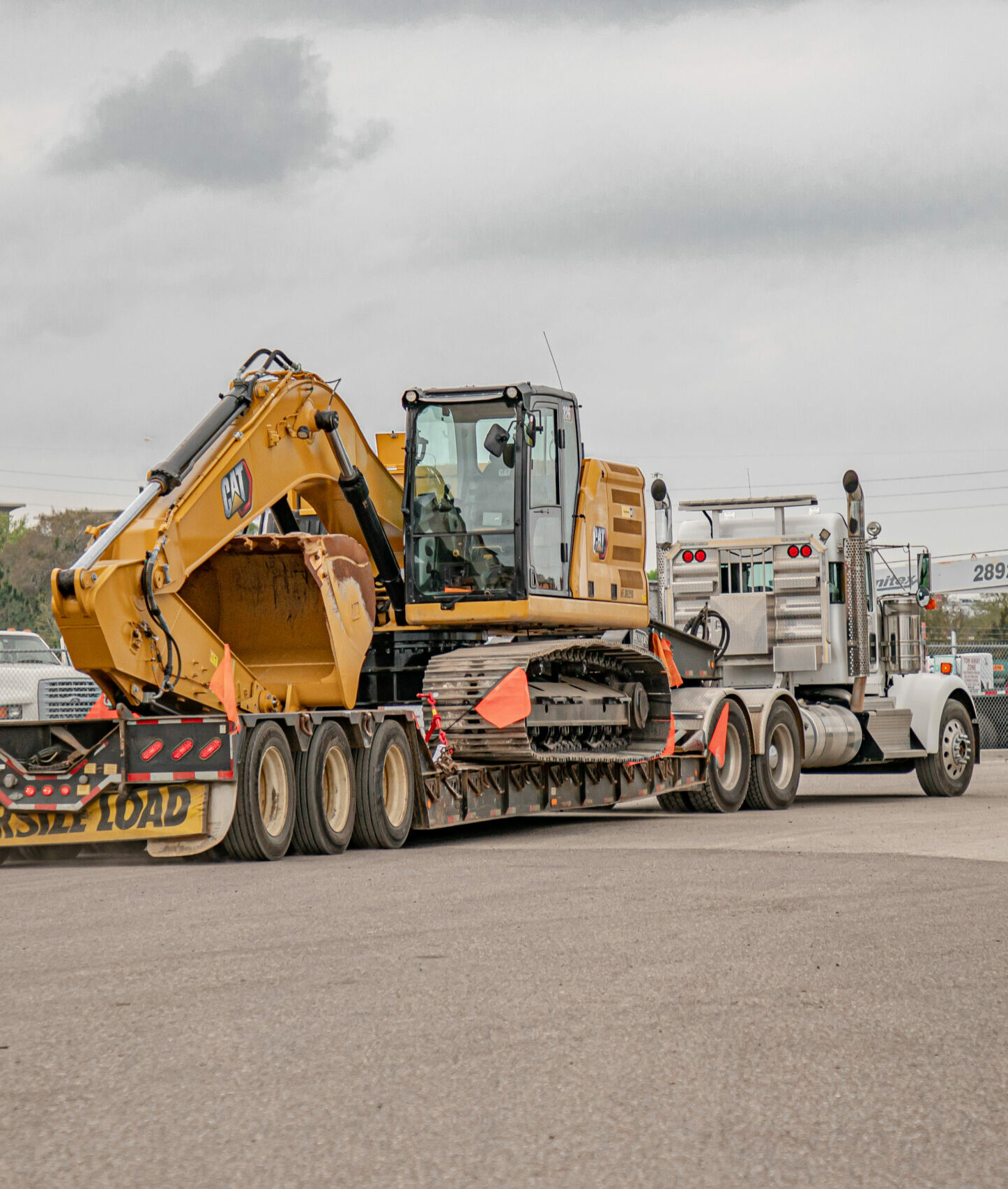
Basic Tips of Heavy Equipment Transport
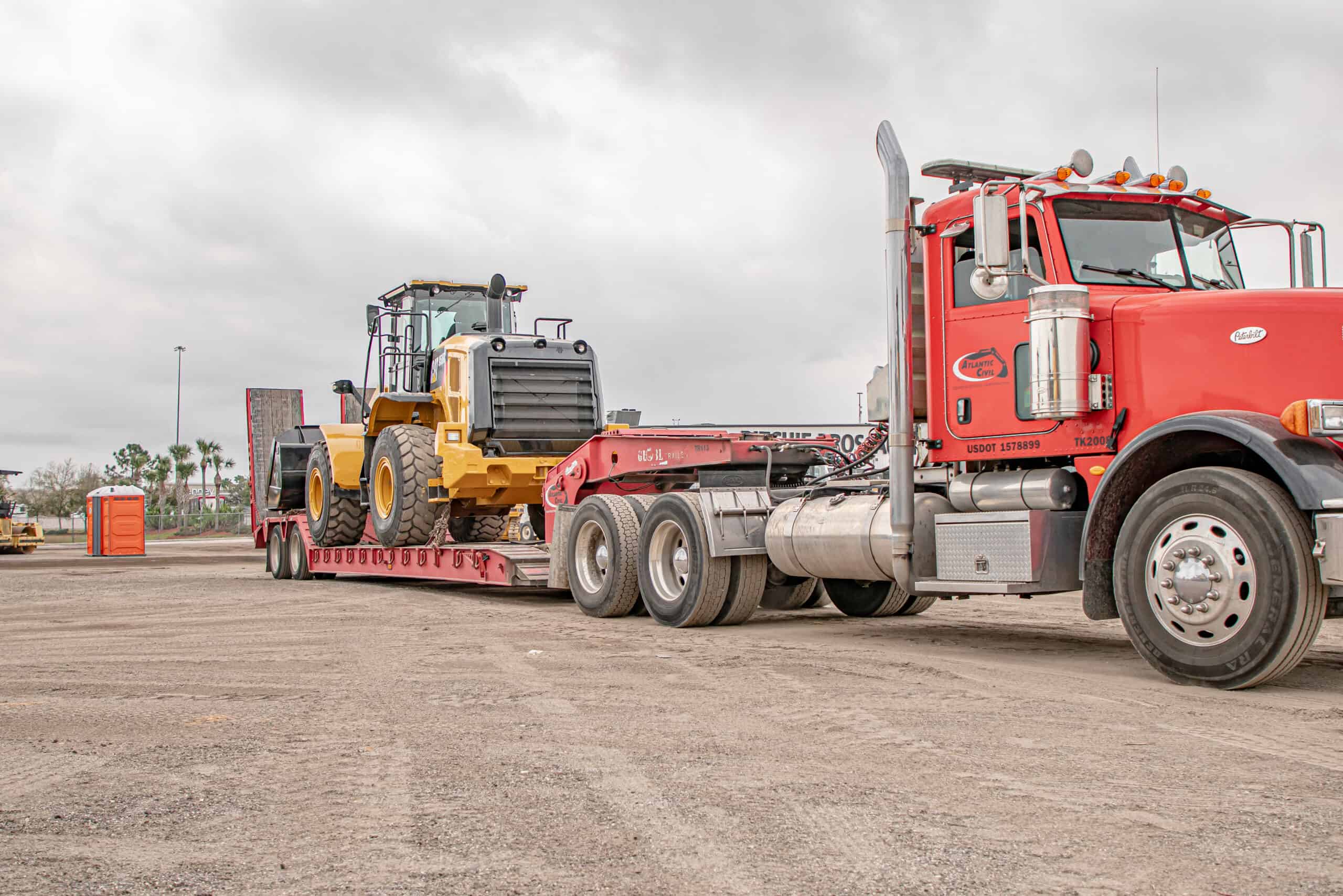
Understanding Equipment Transport Services
